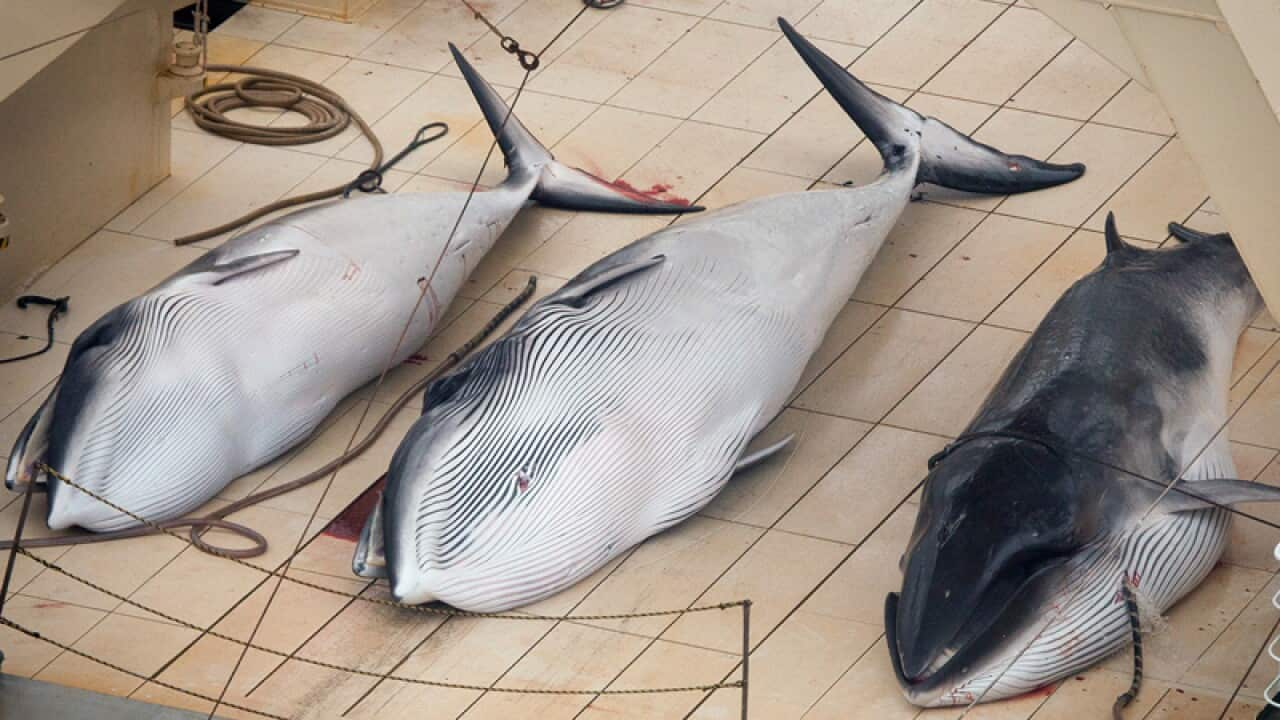Militant environmentalist group Sea Shepherd claims it has shut down Japanese whaling activity in the Southern Ocean for the past week.
Sea Shepherd annually pursues Japan's whaling fleet through the Southern Ocean in the hope of disrupting the hunt, and has had three ships and about 100 crew members in Antarctic waters in 2014.
The commercial hunting of whales is banned in the Southern Ocean Whale Sanctuary, but Japan catches the mammals there under a "scientific research" loophole in the moratorium.
Earlier this month, the group claimed Japanese whaler, the Nisshin Maru, had been separated from the other vessels and the hunt was in disarray.
But Japanese fisheries officials said it was business as usual.
On Friday, Sea Shepherd said recent actions meant the Nisshin Maru hadn't been able to "butcher and process whale meat" for "seven consecutive days".
"The primary strategy of our Antarctic Whale Defence Campaigns is to secure the slipway of the Nisshin Maru, and allow no dead whales to pass into this floating abattoir: we have achieved this goal," said Peter Hammarstedt, who's captain of the Sea Shepherd vessel The Bob Barker.
Captain Hammarstedt said his ship would continue to block the Nisshin Maru's slipway "in our mission to protect the whales and the sanctity of the Southern Ocean Whale Sanctuary".
The group says the Japanese whaling fleet wasn't able to kill any whales for fourteen days in January due to disruption activities.
Meanwhile, the federal government has said it will keep monitoring the whaling and protest fleets in the Southern Ocean, even though a Customs' flight earlier in the month spotted no whaling activities or safety infringements.
The whaling season usually runs until March.

